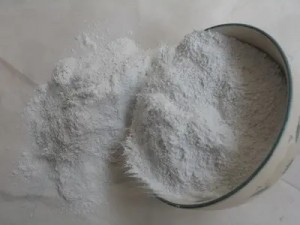
Static electricity disrupts textile processing by causing fibers to cling, attract dust, and hinder production. You face these challenges daily, which can slow operations and reduce fabric quality. Anti-Static Agents provide a reliable solution by eliminating static buildup. Innovative products like Jindun Chemical’s Anti-Static Agent ensure smoother processing and superior textile performance in modern manufacturing.
Static Electricity and Its Impact on Textile Processing
Understanding static electricity in textiles
Static electricity forms when two materials rub against each other, causing an imbalance of electrical charges. In textiles, this often happens during spinning, weaving, or finishing processes. Synthetic fibers like polyester and nylon are especially prone to static buildup because they lack moisture, which helps dissipate charges. You may notice fabrics clinging together or attracting dust, which are clear signs of static electricity at work. This invisible force disrupts the smooth handling of fibers and creates challenges in maintaining quality.
Challenges caused by static in textile production
Static electricity can create significant problems during textile production. Fibers stick to machinery, causing jams and delays. Dust and debris cling to fabrics, leading to contamination and defects. You might also face safety risks, as static sparks can ignite flammable materials in certain environments. These issues slow down production and increase costs. Static buildup also affects the final product, making fabrics less appealing to consumers due to their tendency to cling or attract dirt.
Why addressing static is essential for modern textile manufacturing
Eliminating static electricity is crucial for efficient textile production. By addressing static, you can ensure smoother operations, reduce downtime, and improve fabric quality. Anti-Static Agents play a vital role in this process. They prevent static buildup, allowing fibers to move freely through machinery. This not only enhances productivity but also ensures that your products meet high-quality standards. In today’s competitive market, solving static-related issues helps you stay ahead and deliver superior textiles.
Anti-Static Agents: The Solution to Static Issues
What are anti-static agents?
Anti-static agents are chemical compounds designed to reduce or eliminate static electricity in materials. These agents work by altering the surface properties of fibers, making them less prone to charge buildup. You can apply them during textile processing to ensure smoother operations. They are essential for handling synthetic fibers like polyester and nylon, which are more susceptible to static accumulation. By using anti-static agents, you can prevent common issues like fabric clinging and dust attraction.
Types of anti-static agents and their applications
Anti-static agents come in various forms, each suited for specific applications. Ionic surfactants, such as those in Jindun Chemical’s Anti-Static Agent, are highly effective for synthetic fibers. Nonionic agents are ideal for delicate fabrics like silk and wool. Some agents are applied as surface coatings, while others are integrated into the fiber during production. You can choose the type based on your material and processing needs. These agents ensure that your textiles meet industry standards for quality and performance.
How anti-static agents work to eliminate static
Anti-static agents function by increasing the conductivity of fibers. They allow electrical charges to dissipate quickly, preventing static buildup. Some agents attract moisture from the air, which helps neutralize charges. Others form a thin, conductive layer on the fabric surface. This layer reduces friction and ensures smooth fiber movement. By using these agents, you can eliminate static-related disruptions in your production line.
Benefits of anti-static agents in textile processing
Incorporating anti-static agents into your processes offers multiple benefits. They improve production efficiency by preventing machinery jams and fabric sticking. You’ll notice fewer defects caused by dust and debris. These agents also enhance safety by reducing the risk of static sparks in flammable environments. Additionally, they improve the final product’s quality, making fabrics more appealing to consumers. Anti-static agents are a cost-effective way to ensure smooth operations and superior textiles.
Advancements in Anti-Static Technology for 2025
Innovations in anti-static formulations
The textile industry has seen remarkable advancements in anti-static formulations. Modern solutions now integrate ionic surfactants with enhanced conductivity. These formulations work faster and more effectively to dissipate static charges. You can also find multi-functional agents that combine anti-static properties with other benefits, such as softening or moisture control. These innovations simplify your production process by reducing the need for multiple treatments. Additionally, new formulations are compatible with a wider range of fibers, including blends of synthetic and natural materials.
Sustainable and eco-friendly anti-static solutions
Sustainability has become a priority in textile manufacturing. Many anti-static solutions now use biodegradable ingredients and water-based formulations. These options reduce environmental impact while maintaining high performance. You can also choose agents free from harmful chemicals, ensuring safer working conditions for your team. By adopting eco-friendly anti-static solutions, you contribute to a greener future without compromising on quality or efficiency.
Applications of advanced anti-static agents in textile processing
Advanced anti-static agents improve every stage of textile processing. During spinning and weaving, they prevent fibers from clinging to machinery. In finishing processes, they reduce dust accumulation, ensuring cleaner fabrics. You can also use these agents to enhance the handling of delicate materials like silk or wool. Their versatility makes them essential for producing high-quality textiles that meet modern consumer demands.
The role of Jindun Chemical’s Anti-Static Agent in modern textiles
Jindun Chemical’s Anti-Static Agent represents the cutting edge of anti-static technology. Its ionic surfactant-based formulation eliminates static electricity efficiently. You can apply it to a variety of materials, including polyester, nylon, and cotton. This agent ensures smoother processing, fewer defects, and superior fabric quality. By incorporating Jindun Chemical’s solution, you stay ahead in the competitive textile market while delivering exceptional results.
Addressing static electricity in textile processing ensures smoother operations and higher-quality fabrics. You improve efficiency, reduce safety risks, and deliver products that meet consumer expectations. Advancements in anti-static technology, like Jindun Chemical’s innovative solutions, empower you to stay competitive. By adopting these tools, you shape the future of textile manufacturing with superior results.
Post time: Jan-09-2025

